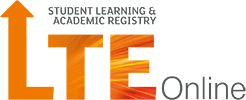As teachers we feedback to students all the time in a range of different ways. It is interesting, however, that we tend to think of feedback solely as the written comments we make on assessed work. While this is to some extent inevitable given the time consuming nature of producing this kind of feedback, it nevertheless can disguise all the other ways we feedback to students. In other words, feedback is not simply about explaining a grade that has been given on assessed work after the assessment has been completed however much it may seem like this.
As the following table shows, in practice feedback on student work can take a number of forms each with a distinct role to play in student learning and each with its own advantages and drawbacks.
| Form of Feedback | Role in Student Learning | Advantages | Drawbacks |
| The mark given to piece of work. |
|
|
|
| Written comments on individual pieces of work. |
|
|
|
| Verbal advice/comment given to individual students about their work |
|
|
|
| Written or verbal comments given to groups of students. |
|
|
|
| Automatically produced feedback on learning or assessment tasks generated through VLEs such as Blackboard. |
|
|
|
| Structured feedback from peers given in the context of learning activities and assessment events. |
|
|
|
Each of these forms of feedback serves a distinct purpose and none are sufficient in themselves to guide student learning. Feedback is fundamental to the ways we can enable students to develop the skills of self-assessment essential to the production of high-quality work.
This model involves a threefold process wherein feedback is central to improvement. Constructive feedback can help students to close the gap and thus, in principle, improve levels of attainment and, as such, should be an integral part of the learning and teaching strategy of a programme or module. In order for feedback to be constructive, however, there are certain principles which should be borne in mind. These are set out in the following table:
| Feedback strategies should: | Feedback strategies should not: |
|
|
